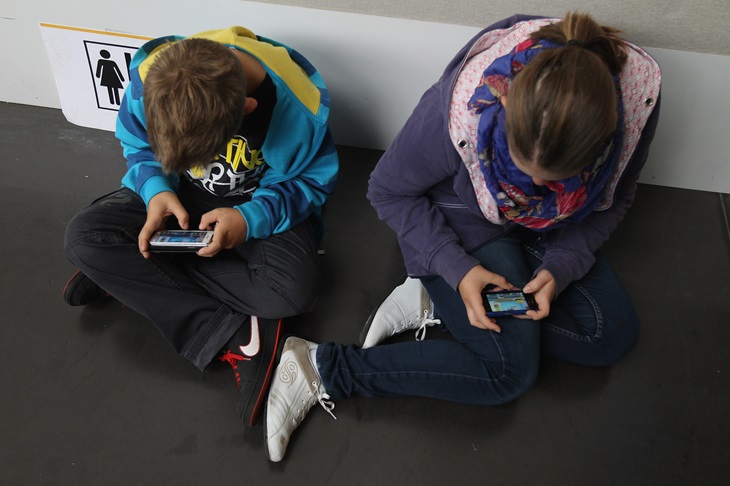In his recent book, The Anxious Generation, the American psychologist Jonathan Haidt warns about the debilitating and destructive impact of mobile phones and the virtual world on children and adolescents.
As I warned in 2014, the digital world, while incredibly tempting and widely endorsed, represents a Faustian bargain guaranteed to cause more harm than good. Over the last 10 years, the impact and influence of digital technology has grown exponentially and Haidt’s book is a much-needed wake-up call for parents, teachers, and policymakers.
Unlike their parents who grew up with Saturday matinees, black and white TVs, old-style house phones, and surrounded by the printed word, Gen Z has been immersed in a world driven by computers, laptops, mobile phones, the internet, and social networking sites since birth.
Such is the dramatic impact of this virtual world, Haidt argues, ‘By designing a slew of addictive content that entered through kids’ eyes and ears, and by displacing physical play and in-person socialising, these companies have rewired childhood and changed human development on an almost unimaginable scale.’
While Baby Boomer parents grew up with picture books, were treated as free-range kids, and learned to socialise and interact physically in the real world, today’s digital natives spend hours every day of the year immersed in a virtual world devoid of face-to-face interaction.
Haidt is especially critical of mobile phones when he argues, ‘The generation born after 1995 – Gen Z – became the first generation in history to go through puberty with a portal in their pockets that called them away from the people nearby and into an alternative universe that was exciting, addictive, and unstable.’
One only needs to use public transport, walk through a busy shopping centre, or watch young people at the beach or in a park to see how prevalent mobile phones are and how dependent children and adolescents are on staying connected.
Ignored is that humans are instinctively social animals where the primal need is to physically interact with others on a regular basis. Especially during childhood, such interaction provides emotional growth as well as teaching the importance of eye-to-eye contact and being socially responsive.
Largely unsupervised and unaware of the dangers, it shouldn’t surprise so many children and teenagers fall victim to sexting, being scammed or cyberbullied by predators lurking in a virtual world devoid of morality and concern for the welfare of others.
Such is the pernicious impact of mobile phones increasing numbers of boys are falling victim to sextortion – a situation where they are duped into sending explicit photos and then made to pay or have the images circulated to family and friends.
Teenage girls are at risk of being caught up in social networking sites where the one most seen as attractive gets the most likes. Feelings of anxiety and loneliness are heightened as a result of not being included in chat rooms or seen as popular.
Not surprisingly, research undertaken by the American-based Pew Research Centre shows 72 per cent of teenagers check their phones when they first wake up and 56 per cent feel anxious and lonely if their mobile is not in reach.
As argued by Baroness Susan Greenfield, an academic at Oxford University, research proves childhood is a critical stage of cognitive development when immature, impressionable brains need to be properly hardwired.
Instead of sitting in front of flickering, ever-moving screens, tracking likes, and talking to virtual friends what children need are memory games, learning to read print, developing hand-eye coordination, and verballing interacting with parents and friends.
While computers and laptops are promoted as the toolbox of the future and a key marketing strategy by schools ignored is stronger performing countries shun digital technology in favour of teachers being authority figures and learning embracing memorisation and rote learning.
Such is the debilitating and dangerous nature of mobile phones and the virtual world Haidt recommends drastic action. Parents are told to if their child is to have a phone before they turn 14 it must be a basic model without internet access.
Social media sites should be banned until 16 to ensure teenagers have the emotional maturity and cognitive development to cope with the stresses and demands. Mobile phones and smart watches should be banned from schools and classrooms and more time spent in physical activity and allowing children to be free range.
Dr Kevin Donnelly is a senior fellow at the ACU’s PM Glynn Institute.
Got something to add? Join the discussion and comment below.
Get 10 issues for just $10
Subscribe to The Spectator Australia today for the next 10 magazine issues, plus full online access, for just $10.


























Comments
Don't miss out
Join the conversation with other Spectator Australia readers. Subscribe to leave a comment.
SUBSCRIBEAlready a subscriber? Log in